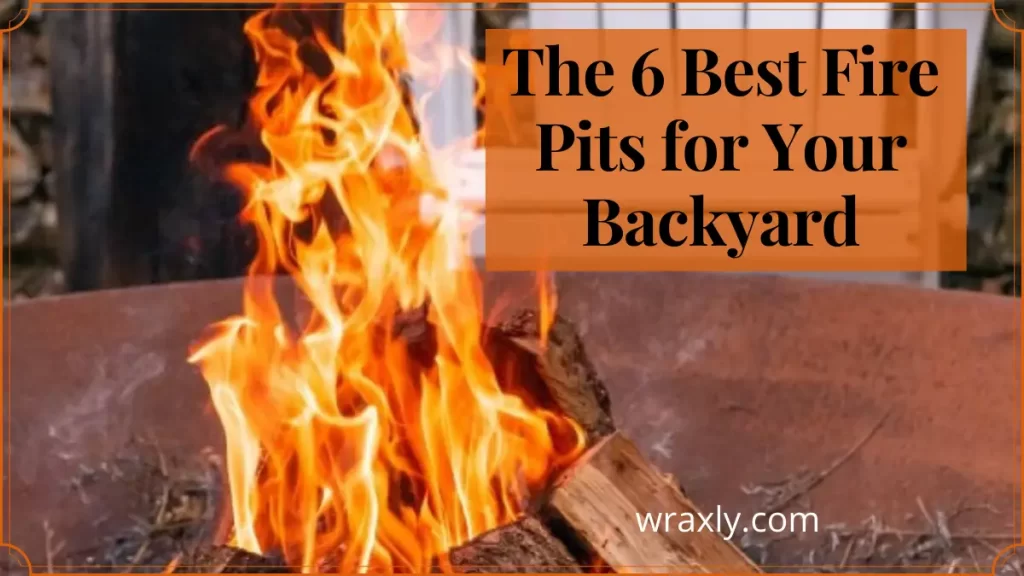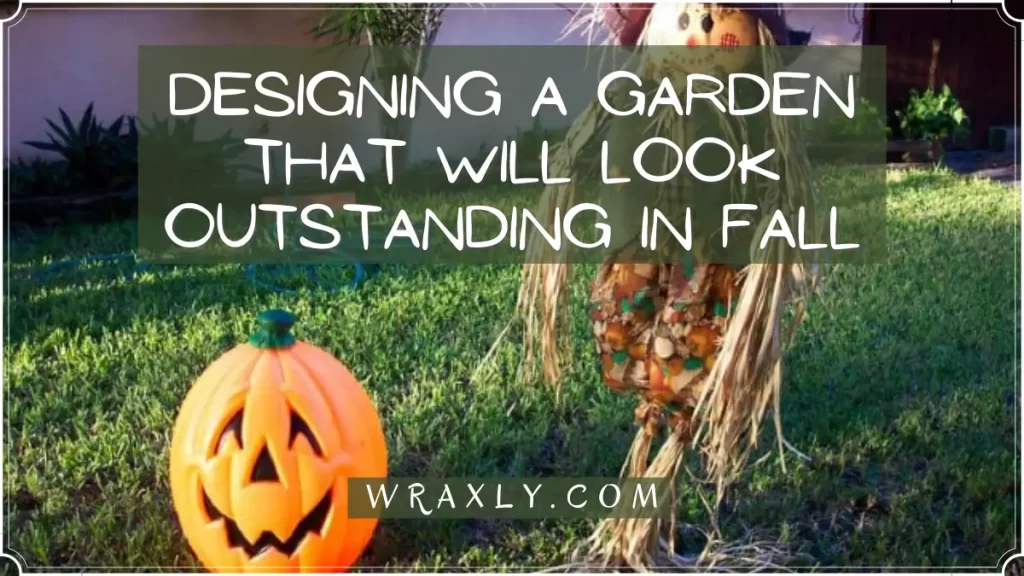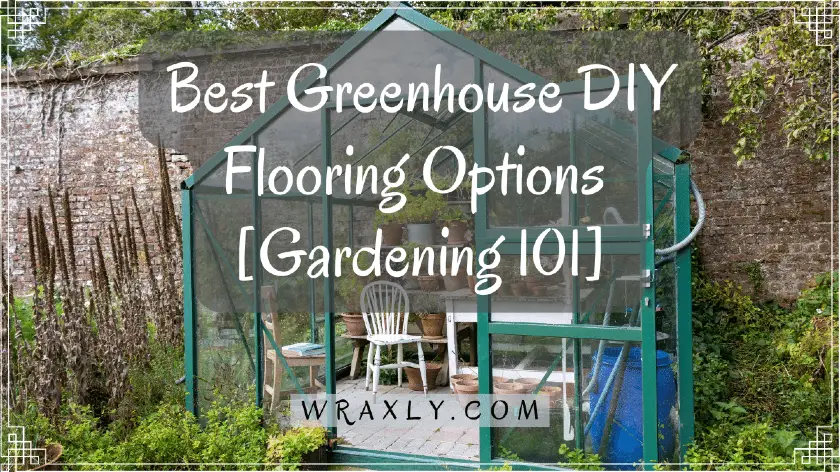Life’s journey brings changes, and one significant shift is the transition from parenting to an empty nest. This post introduces container gardening as a fulfilling and exciting pursuit for empty nesters, offering therapeutic benefits and a tranquil garden sanctuary. Whether you’re seeking a rewarding pastime or intrigued by container gardening, this journey from parenting to planting awaits your exploration. Let’s get started.
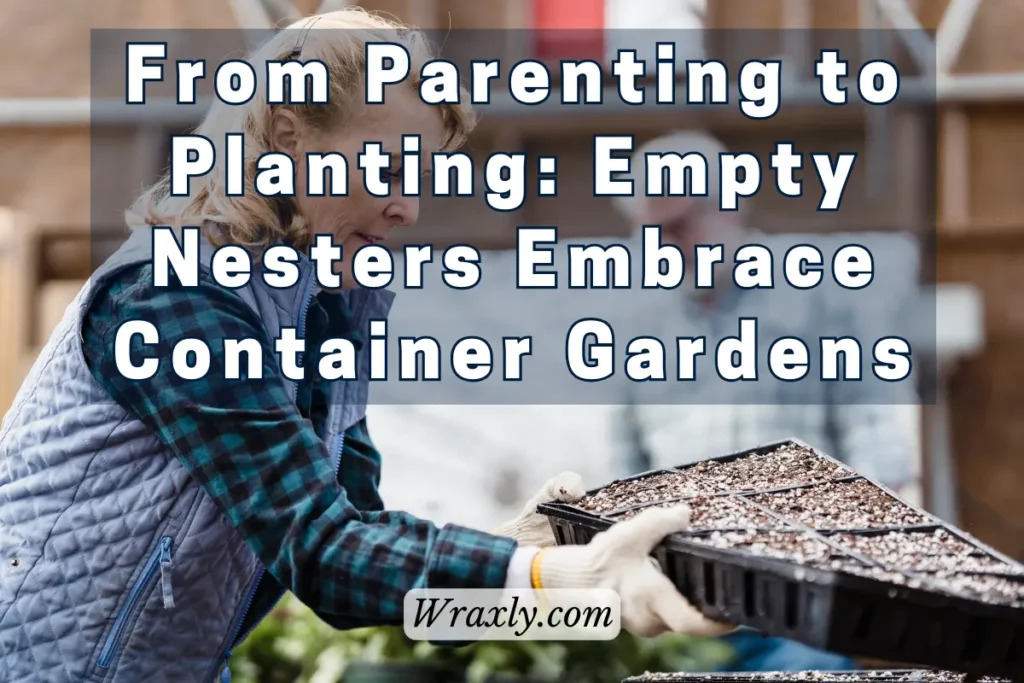
- The Transition to an Empty Nest
- The Therapeutic Benefits of Container Gardening
- Choosing the Right Containers
- Selecting Plants for Success
- Creating a Tranquil Garden Space
- Time Management Tips
- Gardening as a Social Activity
- Seasonal Gardening for Year-Round Joy
- For Further Reading
- Final Thoughts on Container Gardening for Empty Nesters
The Transition to an Empty Nest
The moment your children leave home to pursue their own adventures, you find yourself at a crossroads. The familiar sounds of laughter and chatter that once filled your home may have grown quieter. Daily routines that revolved around school schedules and family activities may have shifted. It’s a poignant transition that can evoke a range of emotions, from pride and nostalgia to a sense of uncertainty.
Embracing this transition is a crucial step towards a fulfilling life as an empty nester. It’s an opportunity to rediscover yourself, your interests, and your passions. While the house may feel emptier, your heart can grow fuller as you embark on this new chapter. Container gardening provides a unique outlet for this transformation, offering solace, purpose, and the chance to nurture new life as you navigate the path from parenting to planting. As we delve deeper into container gardening, you’ll discover how this hobby can be a source of joy, tranquility, and personal growth during this transition.

The Therapeutic Benefits of Container Gardening
Container gardening isn’t just about tending to plants; it’s a therapeutic journey that can positively impact your well-being. As an empty nester, you may find yourself with more time on your hands, and container gardening provides the perfect opportunity to channel that energy into something meaningful.
Gardening has long been recognized for its therapeutic qualities. It offers a chance to reconnect with nature, reduce stress, and improve mental health. The act of nurturing plants, watching them grow, and witnessing the beauty they bring to your surroundings can be profoundly fulfilling. Whether you’re digging your hands into the soil, arranging pots, or simply enjoying the serenity of your garden oasis, container gardening offers moments of mindfulness and tranquility. It’s a powerful antidote to the empty nest syndrome, helping you find solace and purpose in the midst of life’s changes. In the following sections, we’ll explore how to get started with container gardening, from selecting the right containers to choosing the perfect plants for your unique garden sanctuary.
Choosing the Right Containers
One of the first steps on your container gardening journey is selecting the right containers for your plants. As an empty nester, you have the flexibility to choose containers that match your available space and aesthetic preferences.
Container options abound, from classic terracotta pots to hanging baskets and space-saving vertical gardens. Each type of container has its own charm and practicality. Terracotta pots, for instance, offer a timeless appeal and excellent breathability for plant roots. Hanging baskets can add a touch of elegance to your garden and maximize vertical space. Raised beds provide room for a variety of plants and are wheelchair-accessible if needed.
Consider the size of your available space and the kind of plants you want to nurture. Smaller spaces may benefit from compact containers, while larger areas can accommodate multiple pots or larger raised beds. The choice is yours, and it’s all about creating a container garden that suits your needs and style. In the upcoming sections, we’ll delve into the art of selecting plants that thrive in these containers, ensuring a successful and vibrant garden in your new chapter of life.
Recommended Containers
| Image | Title | Prime | Buy |
|---|---|---|---|
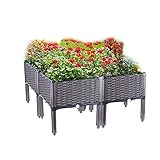 | Raised Garden Bed for Vegetables, 4 Packs | PrimeEligible | Check Price on Amazon |
Top | Self Watering Vegetable Planter Box with Trellis on Wheels - Mobile Garden | Prime | Check Price on Amazon |
 | EMSCO Easy Picker Raised Bed for Vegetables – With 30" Stand, 4 Casters, and Supply Storage Grate – Self-Watering | PrimeEligible | Check Price on Amazon |
 | AXABING 100 Gallon Extra Large Fabric Raised Planting Bed for Vegetables | PrimeEligible | Check Price on Amazon |
 | FOYUEE Galvanized Raised Garden Beds for Vegetables, 8x4x1ft | PrimeEligible | Check Price on Amazon |
 | Mr. Stacky 5 Tier Stackable Strawberry, Herb, Flower, and Vegetable Planter - Vertical Garden Indoor/Outdoor | PrimeEligible | Check Price on Amazon |
Selecting Plants for Success
Choosing the right plants is a crucial aspect of container gardening, and it’s particularly important for empty nesters who are looking for low-maintenance yet rewarding options. Fortunately, there is a delightful array of plant choices that thrive in containers.
- Herbs: Herbs like basil, mint, rosemary, and thyme are perfect for container gardening. They not only add fresh flavors to your culinary creations but also require minimal care.
- Succulents: These hardy and visually appealing plants come in various shapes and sizes. They thrive in pots and can endure periods of neglect. See: Fastest Growing Succulents
- Dwarf Fruit Trees: If you have a bit more space, consider dwarf fruit trees like lemon or apple. They provide fruit and a touch of orchard charm to your garden.
- Colorful Flowers: Nothing brightens up a garden like vibrant blooms. Choose low-maintenance flowers like marigolds, petunias, or pansies to add color and charm.
- Native Plants: Explore native plant varieties suited to your region. They often require less water and maintenance, making them a sustainable choice.
When selecting plants, consider factors such as sunlight availability and local climate conditions. Matching your plant choices to your garden’s environment ensures a thriving and visually appealing container garden. In the upcoming sections, we’ll dive deeper into the art of creating a tranquil garden space and offer insights on time management tips to make your container gardening experience even more enjoyable.
Creating a Tranquil Garden Space
Empty nesters often find themselves with newfound time and space, and container gardening can transform your outdoor area into a tranquil garden sanctuary. Designing a peaceful garden space is not just about aesthetics; it’s about creating an environment that soothes your soul.
Consider incorporating these elements into your container garden design:
- Seating: Add comfortable seating options like benches, chairs, or even a cozy hammock. These provide spaces to relax, read, or simply enjoy the beauty of your garden.
- Lighting: Outdoor lighting can create a magical atmosphere in your garden, extending the hours you can spend enjoying it. String lights, lanterns, or solar-powered garden lights can enhance the ambiance.
- Water Features: The gentle sound of water can be incredibly calming. Consider adding a small water fountain, birdbath, or a pond with aquatic plants to your garden space.
- Shade and Shelter: Create areas of shade with umbrellas, pergolas, or trellises covered in climbing vines. These not only provide relief from the sun but also add to the overall aesthetics.
- Paths and Walkways: Incorporate pathways or walkways lined with pebbles, stones, or steppingstones to navigate your garden comfortably.
By carefully designing your garden space, you’ll create a retreat where you can unwind, meditate, or simply revel in the beauty of your container garden. In the following sections, we’ll delve into practical tips on time management to ensure that your garden remains a joy to nurture, even as you navigate the unique challenges and opportunities of being an empty nester.
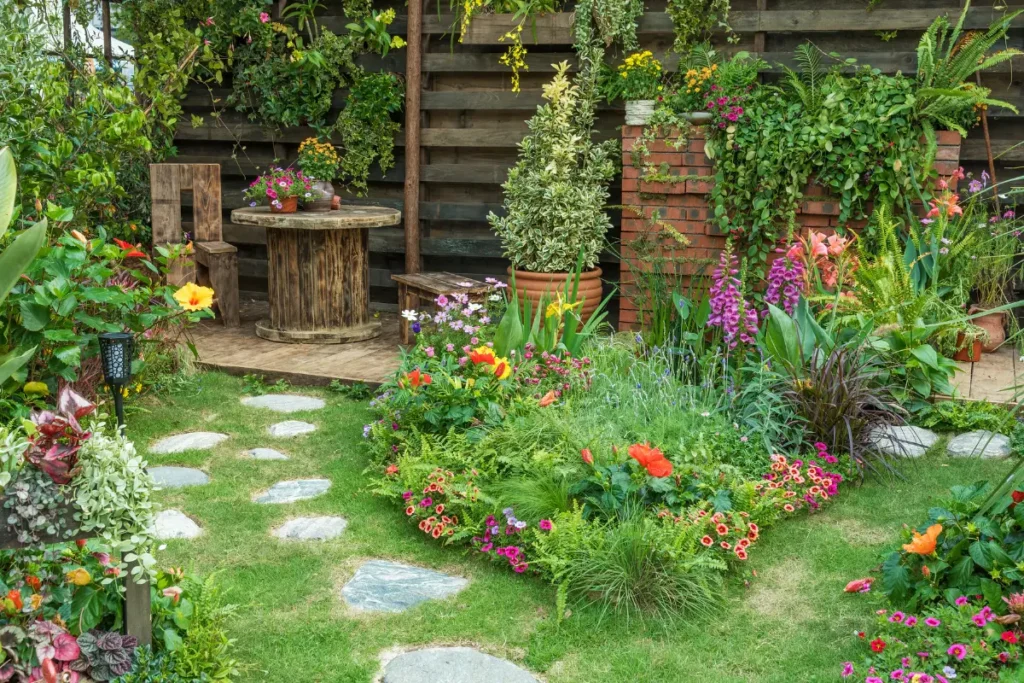
Time Management Tips
As an empty nester, you may find yourself with more free time to indulge in your container gardening passion. However, managing your garden efficiently is essential to ensure it remains a source of joy rather than a chore. Here are some valuable time management tips to keep your garden thriving without overwhelming your schedule:
- Create a Gardening Schedule: Set aside specific times in your week dedicated to tending to your garden. Consistency in care ensures your plants receive the attention they need.
- Use Self-Watering Containers: Invest in self-watering containers, which can reduce the frequency of watering and prevent overwatering or underwatering your plants.
- Mulch: Apply mulch to the top of your containers. It helps retain moisture, regulates soil temperature, and reduces the need for frequent watering.
- Group Plants: Group plants with similar water and sunlight requirements together. This makes it easier to care for them efficiently. See also: Why You Shouldn’t Plant Cucumbers near Tomatoes
- Invest in Gardening Tools: Quality gardening tools can save you time and effort. Consider tools like a long-handled pruner or a lightweight hose for ease of use.
- Enlist Help: If possible, involve family members or neighbors in the care of your garden when you’re away or busy. Gardening can be a bonding experience.
- Plan for Seasonal Changes: Adjust your gardening activities based on the seasons. Some plants may require more attention during specific times of the year.
- Learn Continuously: Stay updated on best practices and gardening techniques. The more knowledge you gain, the more efficient you’ll become in maintaining your container garden.
By implementing these time management tips, you can enjoy the therapeutic benefits of gardening without feeling overwhelmed. A well-tended garden can bring immense satisfaction and become a delightful part of your life as an empty nester. In the upcoming sections, we’ll explore the social aspects of gardening and the joys of seasonal gardening to further enrich your container gardening experience.
Gardening as a Social Activity
Container gardening can be a wonderfully social endeavor, even for empty nesters. It offers opportunities to connect with others who share your passion for plants and gardening. Here are some ways you can make gardening a social activity:
- Join Gardening Clubs: Many communities have gardening clubs or societies where enthusiasts come together to share knowledge, tips, and experiences. Joining a local club can be a fantastic way to meet like-minded individuals and learn from their expertise.
- Community Garden Initiatives: Some neighborhoods have community gardens where residents collectively tend to a shared gardening space. Participating in such initiatives allows you to engage with your neighbors and contribute to a communal green space.
- Garden Parties and Workshops: Host garden parties or workshops in your own garden, inviting friends, family, and neighbors. It’s a delightful way to showcase your gardening achievements and create memorable social gatherings.
- Involve Grandchildren: Gardening can be a bonding experience with your grandchildren. Teach them about plants, involve them in planting and caring for the garden, and watch their curiosity bloom alongside your plants.
- Share Garden Bounties: When your garden produces an abundance of fruits, vegetables, or flowers, consider sharing your harvest with friends and neighbors. It’s a generous gesture that fosters a sense of community and connection.
Gardening, with its nurturing and growth processes, naturally encourages social interaction. It’s an opportunity to connect with others, exchange stories, and build lasting friendships. As an empty nester, engaging in these social aspects of gardening can be both fulfilling and a great way to combat any feelings of loneliness that may accompany this life transition. In our next sections, we’ll explore the joys of seasonal gardening and the satisfaction of sharing your garden’s bounty with others.
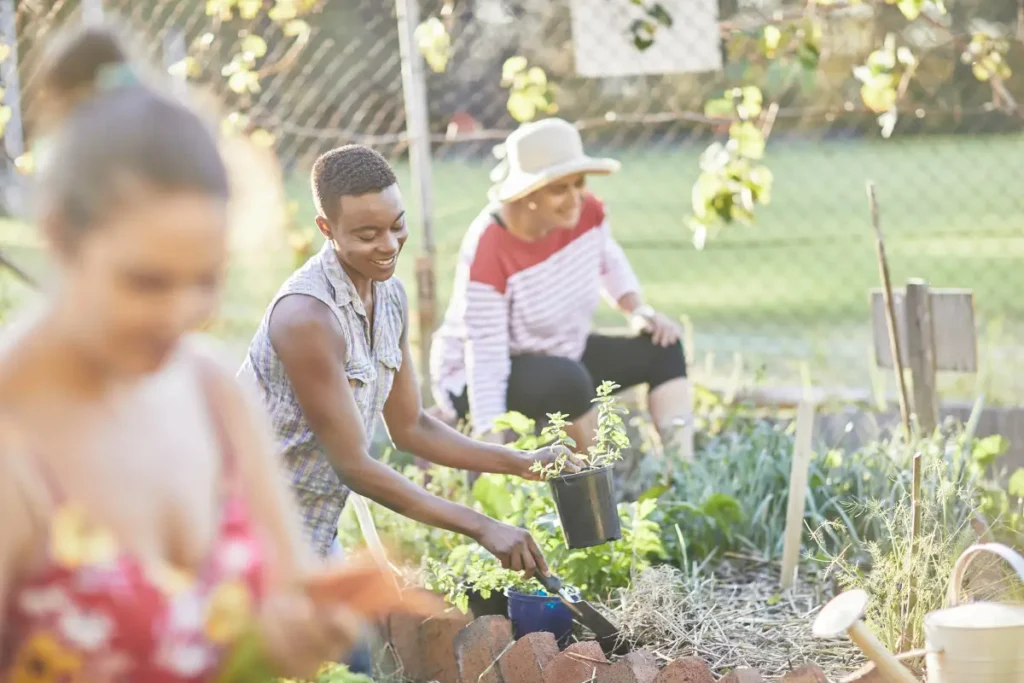
Seasonal Gardening for Year-Round Joy
One of the joys of container gardening is the opportunity to experience the beauty of each season in your own outdoor sanctuary. Seasonal gardening allows you to savor the changing colors, scents, and textures that nature provides. Here’s how you can make the most of each season in your container garden:
- Spring Delights: As the days grow longer and temperatures rise, fill your containers with vibrant spring bulbs like tulips and daffodils. The emergence of new growth and the burst of color will rejuvenate your garden after the winter months.
- Summer Abundance: Summer is the time for a profusion of flowers and bountiful harvests. Plant colorful annuals and perennials for a vibrant display, and consider growing herbs, tomatoes, and peppers for a taste of homegrown goodness.
- Fall Elegance: When autumn arrives, switch to plants that embrace the season, like mums and ornamental kale. The rich hues of fall foliage and the crisp air add a touch of elegance to your garden.
- Winter Resilience: Don’t let winter discourage you. Evergreen plants like holly and boxwood can provide structure and color throughout the colder months. Add some decorative elements like lights or ornaments for a festive touch.
By planning your container garden to reflect the seasons, you’ll enjoy a year-round spectacle of nature’s beauty right at your doorstep. Each season brings its own set of gardening tasks and rewards, ensuring that your garden remains a source of delight throughout the year. In our next section, we’ll explore the satisfaction of sharing the abundance of your garden with others, fostering connections and a sense of purpose in your life as an empty nester.
For Further Reading
- Foodies Guide to Container Gardens
- Sustainable Container Gardening Tips
- Divorcees’ Guide to Container Gardening and Self-Renewal
Final Thoughts on Container Gardening for Empty Nesters
In life’s ever-evolving journey, transitions mark chapters filled with emotions and newfound opportunities. The shift from parenting to an empty nest, while poignant, presents a profound moment of self-discovery. Your home may grow quieter, but it’s also a canvas for personal growth and fulfillment.
Container gardening, as explored in this post, offers a therapeutic path to embrace this new phase. It nurtures new life, creates a tranquil sanctuary, and celebrates the beauty of each season. Whether you seek a fulfilling pastime or simply want to explore the world of container gardening, this journey from parenting to planting is a captivating chapter of growth and connection. May your garden thrive, reflecting the ever-changing seasons of life, and may your heart find solace and joy in nurturing your container garden. Happy planting!
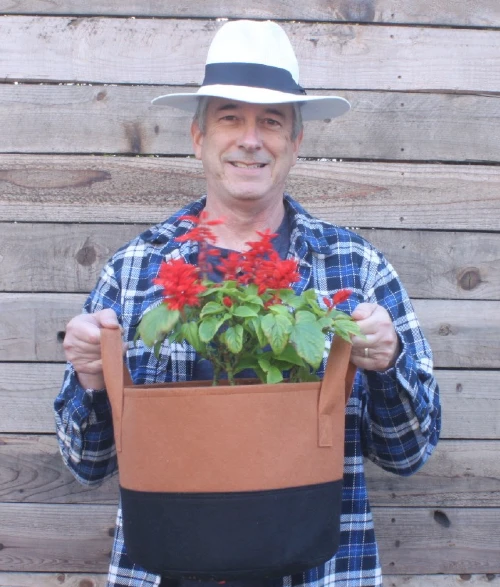
Darrell has a passion for gardening that he inherited from his father. Go here to read more about the influence his father played in his love for gardening. If you want to send Darrell a quick message, then visit his contact page here.
